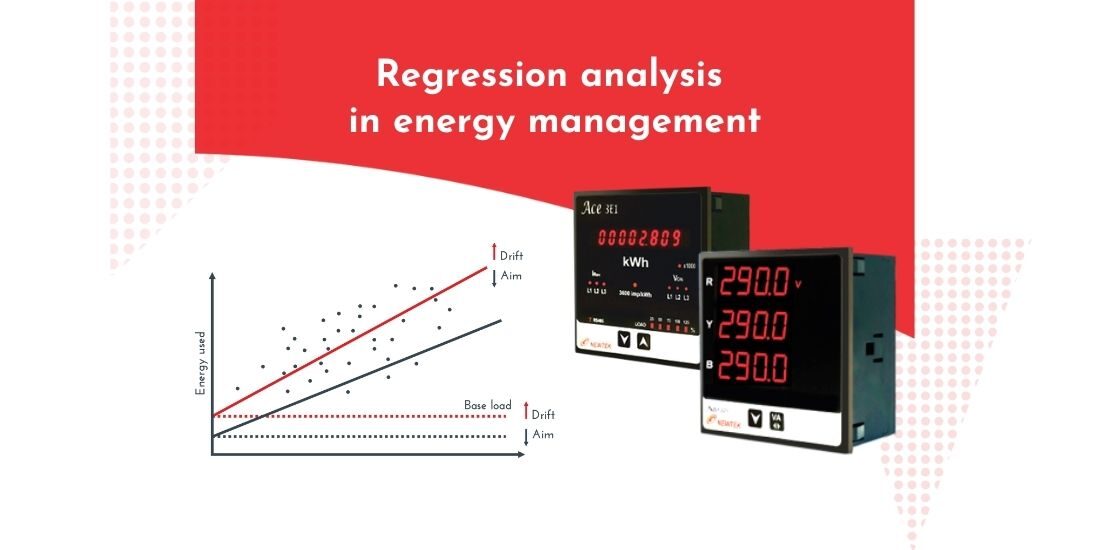- May 3, 2021
- Posted by: Dyaneshwar Nirmale
- Category: Digital Meters

Electricity is the backbone of modern businesses and for those who need high amount of power, energy efficiency is a point of concern. While measures such as shifting to energy-efficient lighting help make micro-savings in terms of energy costs, a prediction about how energy consumption patterns might change in the future could help you make decisions about long-term energy-saving strategy. Businesses often use a statistical method known as regression analysis to identify power saving potential in buildings or taking other long-term decisions that need to take multiple factors into account. In this blog, we discuss how regression analysis can help businesses save power.
What is regression analysis?
Regression analysis is a statistical methods used in various disciplines from finance to engineering and business. It takes one dependent variable and explains its relationship with a series of other variables. Companies use regression analysis to predict sales or design cost-saving strategies based on factors such as weather conditions, previous sales data, or any other factors. For a reliable regression analysis, the data analysts will need sizable data on key plant parameters, and details about inter-dependency of the data points.
Regression analysis in energy management
Regression is often used in power management to evaluate the energy-saving potential of retrofits and design. Linear regression is used to estimate the dependence of energy consumption on factors such as ambient temperature. The data about how the two variables affect each other is then used to predict future energy use and identify the potential for energy-saving.
Businesses can use regression analysis to choose the right kind of energy-efficient and durable equipment, make changes to business processes to save energy costs in the long run and so on. To take an example, a recent study applied regression analysis to energy consumption to a supermarket in the UK and predict their energy use in 2040s. It considered the effects of climate change on energy use in the long term. It was predicted that as climate change happens, warmer areas could see rising demand for cooling systems in warmer regions. At the same time, the demand for heating systems will fall in the colder regions. However, the growing demand for cooling systems will increase energy use.
To counter this, supermarkets could deploy energy-efficient cold storage systems that have a life of 15-20 years, and shift to energy-efficient lighting as fast as possible. Since warmer climate and more humidity could mean heavier use of HVAC systems, designing buildings with better ventilation could help reduce power consumption in the near future. The study also noted that the temperature in 2012 was already at the level expected in 2040.
Requirements for successful regression analysis
A rich power consumption dataset is the core requirement for regressive analysis. Along with conducting an extensive energy audit, companies will need accurate and detailed data about power consumption and vital power quality parameters. Digital meters from Newtek electricals are built to serve the same critical need. The meters provide accurate power consumption data by the hour and present it digitally on screens. The data can also be transferred to computer systems easily for further analysis. Apart from power consumption, Newtek meters also offer insights into key power quality parameters and display the exact cost users will pay in currency for the electricity they consume.
Accurate power consumption data gathered in detail over time could help you generate better insights for cost-saving.
